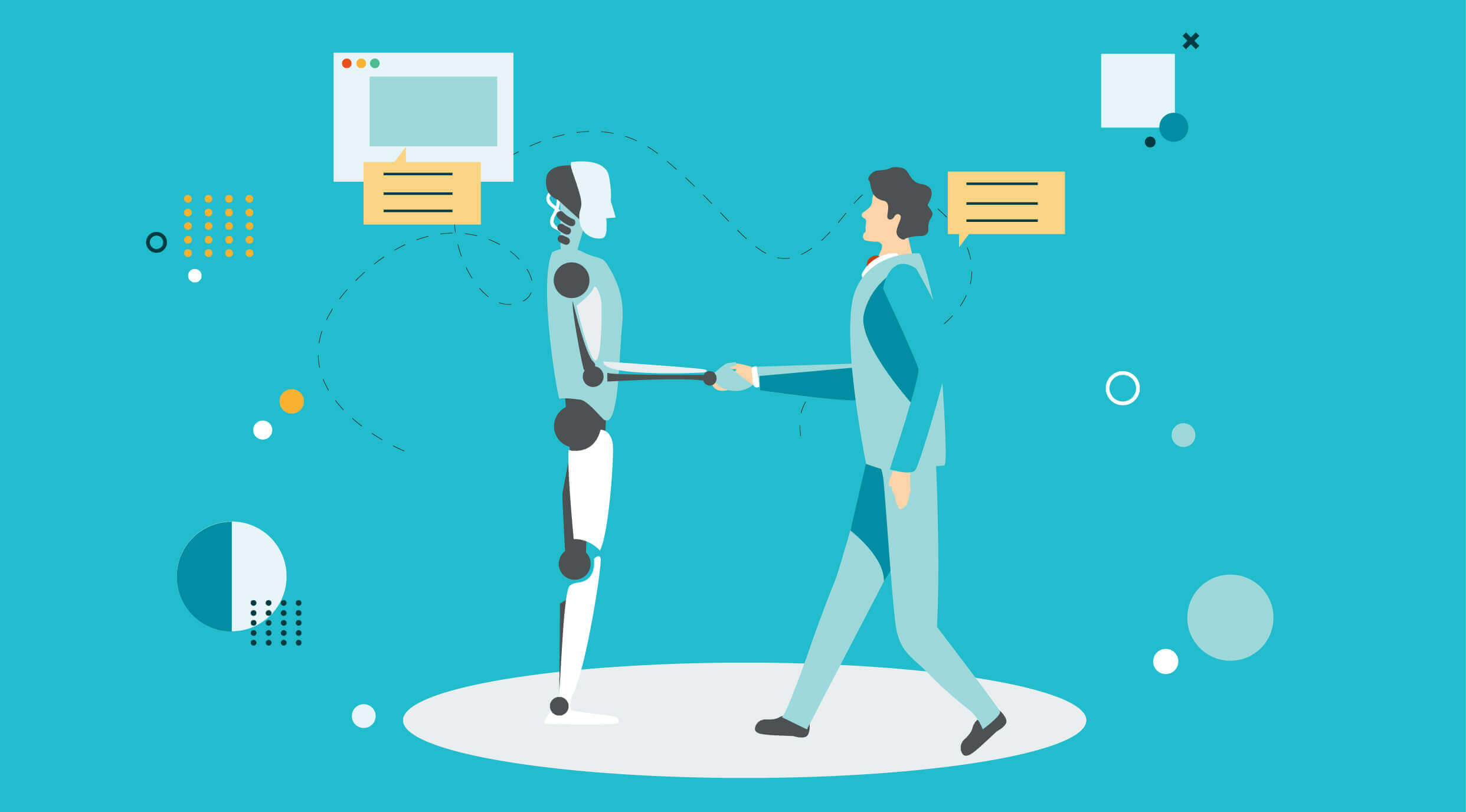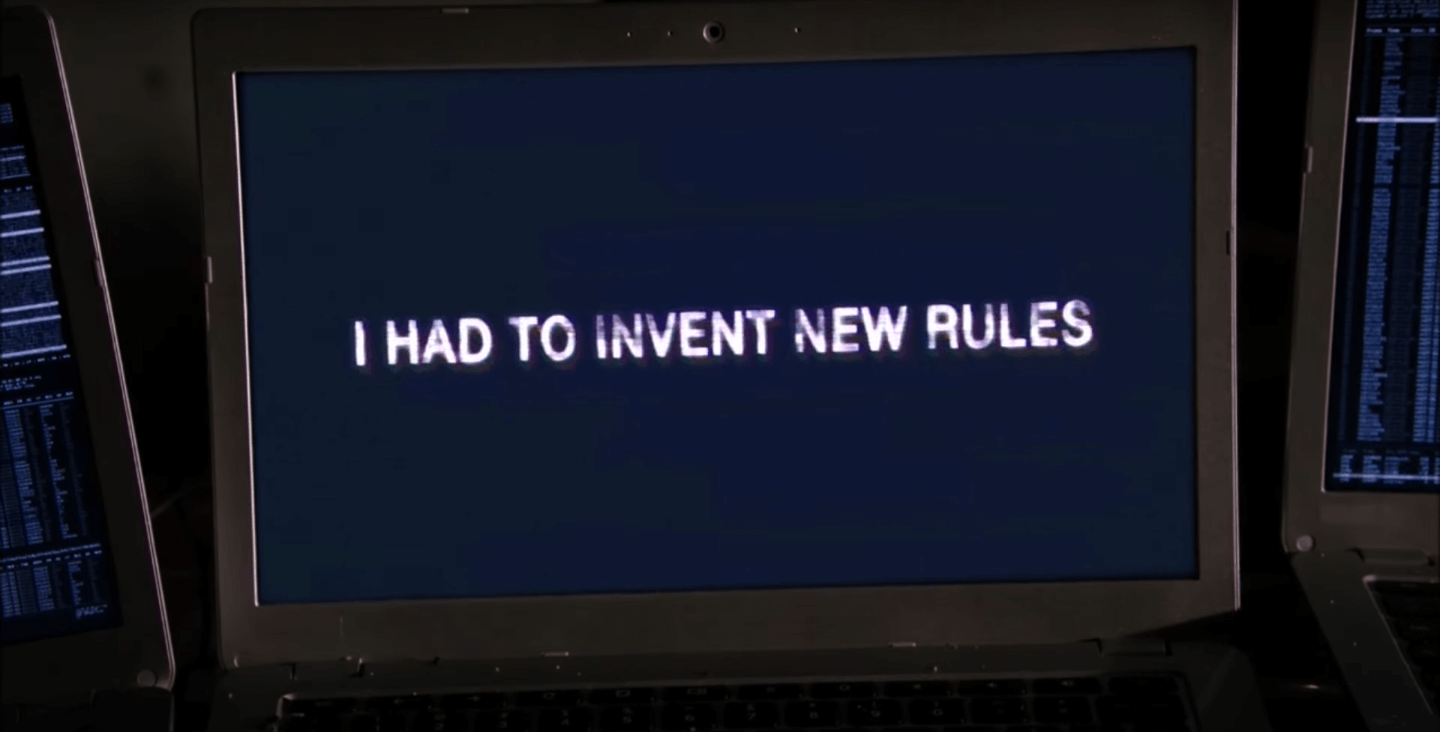AI in recruitment: What the future holds for businesses and recruiters

Imagine you have an assistant – let’s call him Joe – who schedules interviews flawlessly, screens resumes without a hint of bias and identifies the best candidates in record time. What’s interesting about this assistant isn’t his out-of-this-world efficiency, but the fact that he’s not human. He’s AI.
This might be a future many of us have envisioned – one where artificial intelligence makes our lives easier and better. Then there’s the possibility many dread: that Joe won’t actually be your assistant, but rather, your replacement, coming straight out of an Isaac Asimov universe.
How possible are these scenarios and what can we do to ensure technology works to our benefit? And how can we embrace the future of AI?
I recently discussed AI in recruitment with Matt Alder, a reputable British HR thought leader and host of the Recruiting Future podcast. He gave intriguing insights into how businesses currently implement AI in hiring and what the future holds for recruiting professionals. We discuss these insights here.
The first eye-opening fact Matt mentioned is that, despite all the talk about AI recruiting software and their pitfalls and successes, we don’t actually have any genuine artificial intelligence in recruiting.
Contents
The term ‘artificial intelligence’ is greatly exaggerated
According to Techopedia, an accurate definition of AI is “the creation of intelligent machines that work and react like humans.” This means they might understand speech, learn and plan, and solve problems on their own. If you’ve ever watched the acclaimed show Person of Interest, you’ll be pretty hyped up about what’s probably the highest potential form of AI.

But that’s not what the HR and recruiting world seems to be calling AI most of the time.
Matt Alder addresses this confusion: “It’s kind of easy to get caught up in the definition of AI in recruitment. There are many vendors and suppliers to the recruitment marketplace that will claim they have AI and everything they make is based on AI.
“But, you can be pedantic,” quips Matt, “and say we haven’t got any genuine AI in the recruitment space as yet.”
Matt clarifies that the term “AI” usually refers to is relevant technology that’s used in the hiring process. As he mentions:
We’ve got algorithms to match the right people to the right jobs; we’ve got some aspect of machine learning and forecasting, and we’ve also got elements of smart automation creeping in.
Chatbots that increase candidate engagement, automated sourcing, algorithms that show jobs to targeted audiences and other tools are indeed progress towards a world of AI in recruitment, but they’re not quite there yet. “It’s still really early days for all of those too,” says Matt.
The triad of tech models
There are three types of analytics and AI: descriptive, predictive and prescriptive. Descriptive gives us information about what’s happening, predictive shows us an image of the future, and prescriptive technology tells us what we should do based on these findings.
It seems that AI in hiring is still in the descriptive phase with a bit of predictive flair. Matt emphasizes: “We can see development in matching algorithms, helping recruiters to find good candidates that may have been hidden to them, but how do we actually predict which of these candidates are going to perform better in the job?”
For example, Workable’s own AI-powered feature, AI Recruiter, searches thousands of public online profiles in seconds to find candidates who match the skills and requirements listed in your job descriptions. This type of AI recruiting software is certainly useful to help you build a strong talent pipeline, but it can’t actually predict job performance. You still have to shortlist and evaluate candidates yourself.
“We’re probably still at the descriptive stage in terms of trying to understand what’s actually happening before we can unleash a recruiting AI to make our decisions for us,” says Matt.
“The next stage is, obviously, technology starting to accurately predict the performance of candidates and say, ‘Here are 10 candidates that match the criteria you have in mind and these three are going to perform the best.’”
And while that sounds great, what will happen if technology becomes even smarter?
AI in recruitment will take your job (or some part of it)
The fear that AI will take over our jobs and we’ll all be unemployed is frequently mentioned, both in everyday society and in pop culture. And the possibility is very real: we’ve already seen it happen with driverless trains, robot miners and more.
In recruitment, being replaced by AI is also possible, though that possibility is usually considered unimaginable. “I think there’s a lot of denial in the space,” says Matt. “People think, ‘I couldn’t possibly be replaced by a machine so I’m just going to ignore the threat, and not do anything about it.’ And that’s a mistake.”
Fair enough; I, myself, can be accused of falling into that same bucket that Matt refers to. As a content writer, I can’t imagine a machine being able to conjure up stories or compose pieces like I do. But then again, an AI recently wrote Harry Potter fanfiction. It might have been terrible (contrary to what The Verge might think), but machines can learn to improve faster than humans (*cough*).
In the recruiting space, artificial intelligence can learn many of the tasks recruiters already do on a regular basis – and maybe better too. Matt comments:
“Certainly, a lot of the automated and repetitive tasks that recruiters do will be able to be removed. [Many] recruiters think they can’t be replaced by a machine because they have gut instinct and super powers and experience and that means they’re better. But what we’re seeing is that humans are very biased when recruiting.”
“Also, the way many companies recruit isn’t necessarily the best way,” says Matt. “Lots of them are still hiring on CVs and interviews and cover letters and assessment techniques from decades ago. There’s a huge step forward that technology can make to improve those things.”
This doesn’t have to be a dystopian future
There are several arguments against the possibility of a dystopian future brought by machines. One of those arguments begs the question: if AI takes over our current jobs, does that mean there’ll be no jobs left for us humans?
Recent research predicts that 85% of jobs that will exist in 2030 haven’t yet been invented. So even if technology takes over our current jobs, that could actually lead to other kinds of employment. Imagine a world where the most repetitive, dangerous or administrative tasks will be done by machines, leaving humans free to learn and educate themselves in more challenging, innovative, or exciting work.
While that may still be too far ahead into the future of AI for the recruiting world, it’s possible technology will replace people in certain tasks in the next few years. For example, scheduling interviews or screening resumes. And that will open the way for you to focus more at what humans truly own: relationship building. This includes employer branding, recruitment marketing, candidate experience, proactive sourcing during events or social media.
So while “AI Joe” busily exchanges routine information with candidates, predicts the performance of your shortlisted applicants or analyzes their facial expressions, you’re free to attend a popular tech conference speaking to ultra-qualified candidates.
Still, we must prepare
The ideal scenario of a harmonious relationship between humans and machines won’t come on its own. From their part, organizations must plan ahead. When strong AI comes, they may need to rebuild their recruiting process from scratch and rethink their strategies. (Friendly reminder: Workable’s People Search feature, including AI Recruiter, can help you in your recruiting efforts). They might need to render some positions or tasks as redundant or hire based on different specialties and skill sets.
“That’s a massive issue for businesses as a whole,” says Matt, “in terms of how they adjust the skill base of their employees to match the realities of the business.” Training programs that account for not current, but future skill gaps – think predictive analytics! – could be part of the solution.
From a recruiter perspective, it’s about thinking which of their skills are more likely to be needed and valuable, even if AI in recruitment becomes the norm, Matt says. That could be about relationships and about persuasion. Understanding data and being able to turn data into engaging stories from within the business.
“So how do you build relationships with the people you want to hire for your company? How do you persuade them that your company is the right place for them to work? And obviously, how does that reflect back internally?” Matt asks. “How do you work with your stakeholders within the business, and give them good advice and build relationships with them, and persuade them that a certain person might be right for them?”
So in the future, recruiters may focus on anything that involves networking with people and influencing their decisions. That makes sense. Machines are able to process information faster and more accurately than humans, but the ability to connect with others and plan strategically will, for the time being, remain primarily human. As stated in an article published in Harvard Business Review, the future might not see people competing with machines for jobs, but rather, humans will be freer to unleash their imagination, creativity and strategic abilities.
There are good reasons to be optimistic about the advent of AI in recruitment. We just need to be aware of the changes that are coming and hone our skills in areas that artificial intelligence can’t easily take over.
Frequently asked questions
- What is AI in recruitment?
- AI can help recruiters by using machine learning and artificial intelligence to analyze resumes, shortlist candidates for interviews or assessments, and automate manual tasks in the recruitment process.
- How many companies use AI recruiting?
- The future of hiring is here, and it's not only for the better-qualified candidates. Most Fortune 500 companies have AI tools within their plans—and these numbers are trending upward!
- How is AI used in talent acquisition?
- With AI, recruiters and talent acquisition professionals can find better-qualified candidates faster. They also have greater insights into employees to help with onboarding—allowing them to make more informed hiring decisions that will lead their organizations forward!




